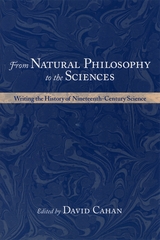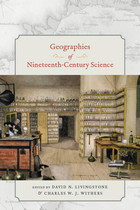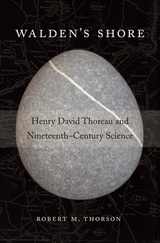
A feminist who made lifelong enemies almost as readily as she made friends, Royer was never able to undertake formal, advanced education and was a product of her own self-study efforts. Only in her last few years was she formally recognized by several professional societies and awarded the French Legion of Honor. Harvey includes an overview of earlier biographical treatments, the text of an 1874 communication on "Women, Science, and the Birth Rate," and extensive notes.

In this book, eleven leading historians of science assess what their field has taught us about this exciting time and identify issues that remain unexamined or require reconsideration. They treat both scientific disciplines—biology, physics, chemistry, the earth sciences, mathematics, and the social sciences—in their specific intellectual and sociocultural contexts as well as the broader topics of science and medicine; science and religion; scientific institutions and communities; and science, technology, and industry.
Providing a much-needed overview and analysis of a rapidly expanding field, From Natural Philosophy to the Sciences will be essential for historians of science, but also of great interest to scholars of all aspects of nineteenth-century life and culture.
Contributors:
Bernadette Bensaude-Vincent, Jed Z. Buchwald, David Cahan, Joseph Dauben, Frederick Gregory, Michael Hagner, Sungook Hong, David R. Oldroyd, Theodore M. Porter, Robert J. Richards, Ulrich Wengenroth

In Geographies of Nineteenth-Century Science, David N. Livingstone and Charles W. J. Withers gather essays that deftly navigate the spaces of science in this significant period and reveal how each is embedded in wider systems of meaning, authority, and identity. Chapters from a distinguished range of contributors explore the places of creation, the paths of knowledge transmission and reception, and the import of exchange networks at various scales. Studies range from the inspection of the places of London science, which show how different scientific sites operated different moral and epistemic economies, to the scrutiny of the ways in which the museum space of the Smithsonian Institution and the expansive space of the American West produced science and framed geographical understanding. This volume makes clear that the science of this era varied in its constitution and reputation in relation to place and personnel, in its nature by virtue of its different epistemic practices, in its audiences, and in the ways in which it was put to work.

"Let us settle ourselves, and work and wedge our feet downward," Thoreau invites his readers in Walden, "till we come to a hard bottom and rocks in place, which we can call reality." Walden's Shore explores Thoreau's understanding of that hard reality, not as metaphor but as physical science. Robert M. Thorson is interested in Thoreau the rock and mineral collector, interpreter of landscapes, and field scientist whose compass and measuring stick were as important to him as his plant press. At Walden's climax, Thoreau asks us to imagine a "living earth" upon which all animal and plant life is parasitic. This book examines Thoreau's understanding of the geodynamics of that living earth, and how his understanding informed the writing of Walden.
The story unfolds against the ferment of natural science in the nineteenth century, as Natural Theology gave way to modern secular science. That era saw one of the great blunders in the history of American science--the rejection of glacial theory. Thorson demonstrates just how close Thoreau came to discovering a "theory of everything" that could have explained most of the landscape he saw from the doorway of his cabin at Walden. At pivotal moments in his career, Thoreau encountered the work of the geologist Charles Lyell and that of his protégé Charles Darwin. Thorson concludes that the inevitable path of Thoreau's thought was descendental, not transcendental, as he worked his way downward through the complexity of life to its inorganic origin, the living rock.
READERS
Browse our collection.
PUBLISHERS
See BiblioVault's publisher services.
STUDENT SERVICES
Files for college accessibility offices.
UChicago Accessibility Resources
home | accessibility | search | about | contact us
BiblioVault ® 2001 - 2024
The University of Chicago Press









